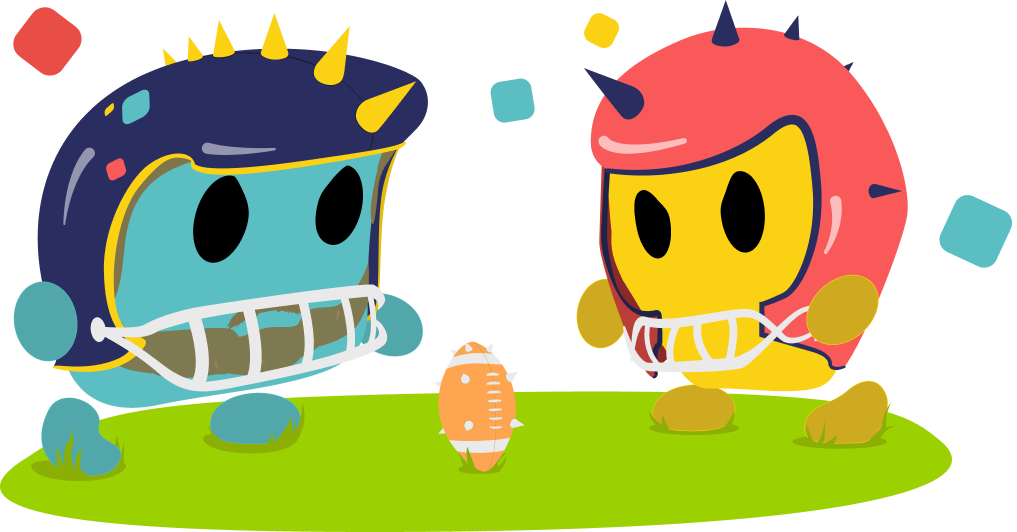Blood Bowl: A Cultural History
We are pleased to announce the launch of Paul Wake’s new research project: Blood Bowl: A Cultural History. Funded by Game in Lab, this project runs the length of 2024.
Overview
This project contends that board games are significant historical texts that respond to and shape the cultures within which they are created. Moreover, it addresses the lack of critical historical analysis of twentieth and twenty-first century games, and in particular work on hobby games. Responding to these gaps in knowledge, the project will demonstrate the significance of board games in reflecting and shaping the cultures out of which they arise, and will address the lack of critical work on these games, through the researching and writing of the first book-length study of Games Workshop’s Blood Bowl (1986-present) and the construction of a virtual archive relating to the game.
Research Objectives
The project has four related objectives:
RO1: Document the history of Games Workshop’s Blood Bowl (1986-present). The project will draw together disparate artefacts, texts, interviews and surveys to produce an online virtual Blood Bowl archive and a narrative history of Blood Bowl.
RO2: Examine the connection between games and their cultural contexts. Framed through a media studies lens (Booth 2021), the project will demonstrate the connection of games and the historical and geographical contexts out of which they emerge.
RO3: Examine the relationship between games and sport. I will analyse this by considering the nature of the popular genre of sports simulation games before turning to philosophical questions of sports and mediation.
RO4: Examine the connection of game mechanics and game fictions. Through an investigation of the Blood Bowl’s push-your-luck mechanic and a parallel examination of the game’s sporting theme (enacted through an analysis of its miniatures), this final objective sets out to establish the relation of game mechanics and game fictions.
Project OUTCOMES
The project, which runs throughout 2024, has two outcomes. The first is an open access monograph (tentatively called ‘Blood Bowl: A Cultural History’ which will be published as part of the University of Michigan Press’s new ‘Tabletop Games’ series. Aimed at both academic and general readers, this book opens with a history of the game’s development, then examines at the its core mechanics (focussing on the turnover rule), before considering the game’s theme through a discussion of its miniatures. Finally, if all goes to plan, these three sections – production, mechanics and theme – will be drawn together in a discussion of the experience of play.
Alongside this print publication, the project will generate an online archive of material relating to the history of Blood Bowl and its communities. This website (details to follow soon!) will include articles on the game, interviews with its players and designers, and a virtual archive (virtual in the sense that it will create and detail an archive that does not exist in a single physical location), that will offer item-level descriptions of materials relating to Blood Bowl (including, but not limited to, the various editions of the game, the game’s miniatures, and related publications spanning the game’s long history.
Paul Wake is Reader in English Literature at Manchester Metropolitan University and a co-director of the Manchester Game Centre. He is the co-editor, with Dr Chloé Germaine, of a collection on analogue gaming Material Game Studies (Bloomsbury 2022), and has published book chapters and articles on literary representations of casino games, Fighting Fantasy gamebooks, board game pieces, ecogames, and game design for communication. He wrote a monthly column bringing academic game studies to a general readership for Tabletop Gaming Magazine (August 2017-April 2019), has designed three games on the climate crisis (Carbon City Zero, Catan: Global Warming, and CO2). He has been playing Blood Bowl since its first edition, and was co-founder of The Waterbowl, one of the UK’s largest and longest running Blood Bowl leagues and tournaments, in 2004.
If you would like to know more about the project, Paul can by contacted by email at p.wake@mmu.ac.uk.




